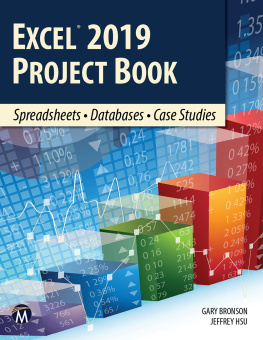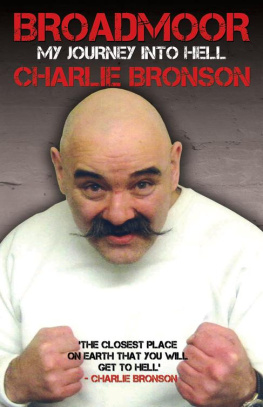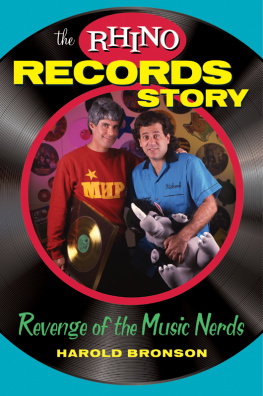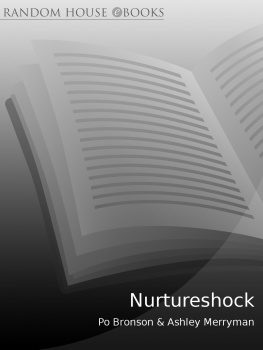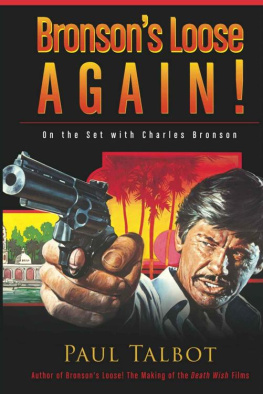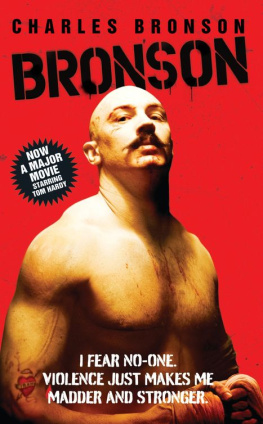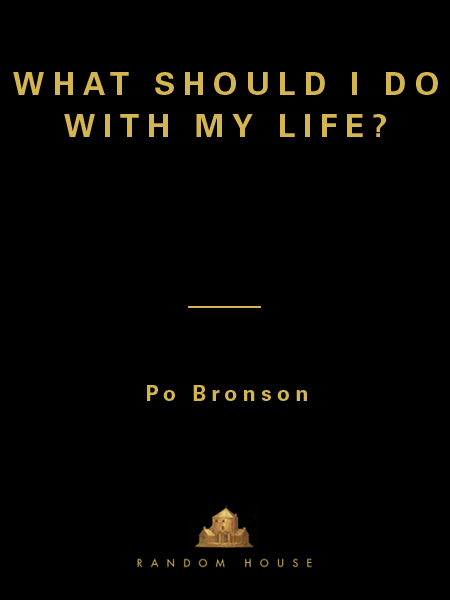
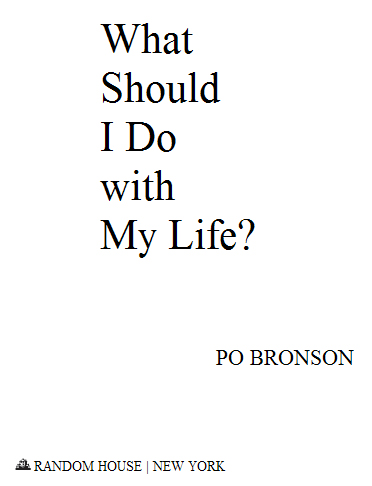
Contents
For Michele and Luke
What
Should
I Do
with
My Life?
Introduction: Obvious Questions Dont Have Obvious Answers
FROM YOUR FEARS COME MISCONCEPTIONS
We are all writing the story of our life. We want to know what its about, what are its themes and which theme is on the rise. We demand of it something deeper, or richer, or more substantive. We want to know where were headednot to spoil our own ending by ruining the surprise, but we want to ensure that when the ending comes, it wont be shallow. We will have done something. We will not have squandered our time here.
This book is about that urge, that need.
I began this project because I hit that point in my life. The television show Id been writing for was canceled. The magazines I wrote for had thinned their pages. My longtime book editor had quit to pursue theater and film. I was out of work, and though I could have hustled up more, I wasnt sure I should. I felt like the kinds of stories Id been telling no longer worked. They no longer mapped the depth and drama of human life as I experienced it.
I found I was intrigued by people who had unearthed their true calling, or at least those who were willing to try. Those who fought with the seduction of money, intensity, and novelty, but overcame their allure. Those who broke away from the chorus to learn the sound of their own voice. Nothing seemed more brave to me than facing up to ones own identity, and filtering out the chatter that tells us to be someone were not.
What might we learn from those who had confronted this question?
I decided on the simplest approach possible: I would express my curiosity to whoever would listen, trust this would provoke some leads, and travel the country tracking down the people whose stories spoke to me. I had no idea that sticking to this simple method would soon take me to so many places Id never been, and far deeper into peoples lives than Id ever gone as a writer.
I hit on an incredible wellspring of honest sentiment. Complete strangers opened their lives and their homes to me, confessing feelings and events they hadnt revealed to their closest friends. This was at a time when we were losing our respect for corporate leaders, we no longer believed new technology would make our lives better, and the attack on our freedom made life precious and weighty. People were reassessing what mattered to them and what they believed in.
I heard some nine hundred stories, spent countless hours corresponding and on the phone, and came to know about seventy people closely. I spent time with them all in person, which was absolutely necessary. (About fifty are included in the book.) The word interview doesnt describe the emotional exchange that usually occurred. None were friends when I started, but most were by the time I was done. These were microwave friendships, forged with fast blasts of revelation and bonding, like those formed quickly in a freshman dorm, remembered for years. I let them cry in my arms. I slept on their couches. I sat in their musty attics, looking through old photo albums. We went running together. We traded secrets. I met their parents and held their children. I went to ones wedding. I became symbolically associated with their turning points. Many people described how much it helped them to have me listen; they talked their way into a greater understanding of what had transpired and why.
I was no expert. I had no credentials as a counselor or academic. I approached these people as merely one of them. The events of my life had shredded any theories I used to have about how to address the question What should I do with my life? I had been humbled into admitting I knew nothing, and as I hit the road I was continuously humbled again by what some of these people had endured and the wisdom they seemed to radiate. I learned from them through inspiration and imitation. I also learned from the multiplicity of storiesby comparing how people talked and what language they invoked, certain patterns emerged, and I could place a story in the context of the larger picture.
The flip side to caring for them was an occasional intrusion. When people were in midtransition and confused, they routinely asked for my counseling. This was always an uneasy role; usually, I handled this by telling other peoples storiesHeres what this person found, in a similar situation.... In a few instances, I was not so passive when I sensed that my passivitymy listening modewas being taken inappropriately as endorsement. I didnt want to be an accomplice to a wrong turn. So I tried to guide them by reminding them of their own stated resolutions. I didnt handle all these situations perfectly; I reveal these moments in the text to show my own fallibility.
People asked a great many questions that helped steer my research. Many of these questions were of the smart-aleck variety, merely intellectual/devils advocate babble, but it was much more difficult and challenging to address those asked from the heart, by people stuck in the middle of it and honestly confused. Questions such as:
| Is it supposed to feel like destiny? If not, is (experience-derived) self-created meaning legitimate? |
| Should I accept my lot, make peace with my ambition, and stop stressing out? |
| Why do I feel guilty for thinking about this? |
| Should I make money first, to fund my dream? |
| How do I tell the difference between a curiosity and a passion? |
| How do I weigh making myself a better person against external achievements? |
| When do I need to change my situation, and when is it me that needs to change? |
| What should I tell my parents, who worry about me? |
| If I have a child, will my frustration over my work go away? |
| What will it feel like when I get there? (How will I know Im there?) |
These were screamingly obvious questions, but it seemed they were almost so obvious that we hadnt publicly collected how weve learned to answer themas if the answers should be obvious too, which theyre not. Too often were reticent about these issues. Talking about them can seem so fruitless, meanwhile inflaming anxiety and diverting us from the other things we have more control over, and can do. Yes, but it can also strengthen our resolve and shield us from distractions. I found that the biggest obstacle to answering the question this book poses is that people dont give themselves permission to take it seriously. At the risk of being fruitless, let this book be a safe place for a discussion.
This book does not research the history of its question. I dont quote experts, though I interviewed some, and I dont quote literature unless it was quoted to me by someone I wrote about. I didnt spend time in the library to write this book. Those sources of wisdom felt too abstract compared to the hard-earned record of those who actually took action, changed their life, and enjoyed or suffered the consequences.
The people in this book are ordinary people. By that I mean they did not have available to them resources or character traits that gave them an uncommon advantage in pursuing their dream. Some have succeeded, many have not. Only one, in my mind, is saintly. Only two had what accountants call financial independence. Only two were so smart that theyd succeed at anything they chose, though having more choices made answering the question that much harder. None were gypsies by nature, such free spirits that they didnt need or crave a place to call their own, though some eventually found their solace in learning to live that way. Only two asked me for my sign. Only two asked me not to use their real names. Otherwise, they were people who faced up to it, armed with only their weaknesses, equipped with only their fears. I chose stories that I hoped would encourage reflection and offer solace, not ones that merely entertained.
Next page

